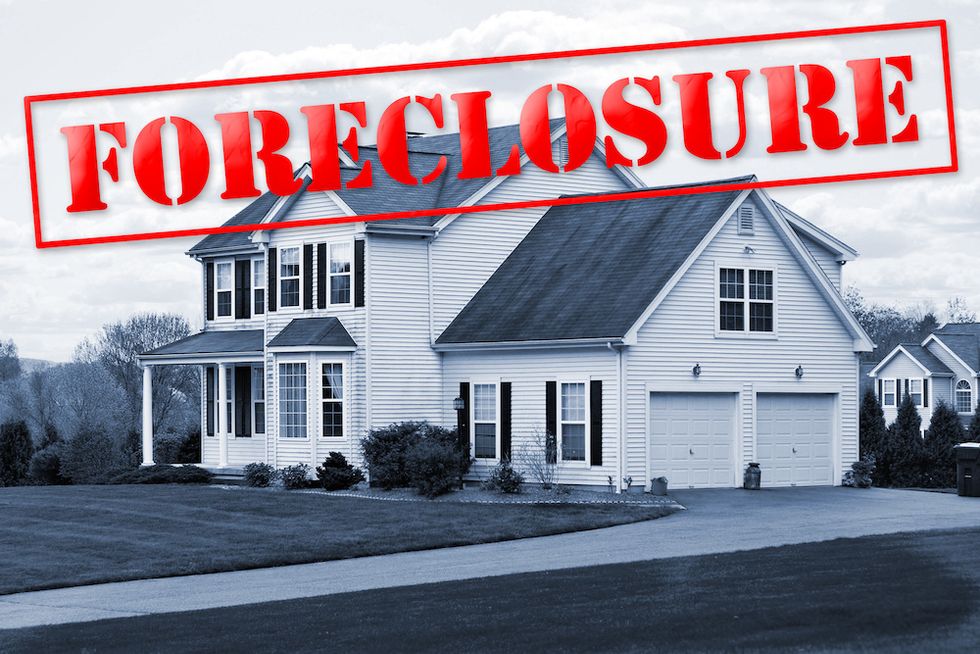Don't lose hope. Even with that foreclosure auction looming in your future, there are options to delay and ultimately prevent a foreclosure auction of your house. You can usually find a way to buy time, explore alternatives, and take control of the process, including the option of calling Mac Properties for a cash offer to help you unload your house quickly and fairly so you can move on.
Here are some of the best choices for avoiding the auction of your home.
Option 1: Apply for a Loan Modification
First things first: apply for a loan modification, and do it fast. This isn't a great last-minute option, but if you make your request as soon as you start falling behind in your mortgage payments, you can buy yourself a lot of time. A loan modification may take many forms, but the ultimate goal is to lower your monthly payments. This can be done by modifying the loan for a longer term, lowering the interest rate, or even reducing the amount of the principal.
Of course, applying for a loan modification does not guarantee that your request will actually be granted. But even if it's not, you still have the option to follow up with a lengthy appeals process, giving you a few extra months to explore other options for saving your home or gaining more control over the way you part with it.
Option 2: File for Bankruptcy
The first thing to understand about bankruptcy is that it will not eliminate your debts. What bankruptcy does is require your lenders to work with you to arrange a reasonable repayment plan. This approach also buys a lot of time.
When you file a bankruptcy petition, you are granted an "automatic stay." This means debt collectors must cease collection activities (for now). The foreclosure process is therefore frozen the day your lender becomes aware of your bankruptcy filing. As for what bankruptcy means for you and your home in the long term, that depends on your individual situation and the type of bankruptcy. A Chapter 13 bankruptcy, for example, is likelier to help you restructure your loan in order to ultimately keep your home, whereas a Chapter 7 is good if you're just stalling for time. Either way, be sure to discuss your options with a bankruptcy attorney, as there are a lot of important considerations that come with filing for bankruptcy.
Option 3: Request a Deed in Lieu
Before you get too excited about this option, be forewarned: a deed-in-lieu is hard to pull off.
Simply put, a deed-in-lieu happens when you sign the deed back over to the bank voluntarily. It has the same effect on your credit as a foreclosure, unfortunately. However, the benefit of a deed-in-lieu is that you get out of this process without having a foreclosure listed in your financial history.
It should be noted that lenders rarely accept this option, as there are some risks involved for them. They have to pay off your second or third mortgages before they can execute a deed-in-lieu. They put themselves at risk of a lawsuit if the homeowner later claims they didn't understand what was happening when they signed over the deed. And lenders are also wary of homeowners who might be falsely claiming financial distress. In order to execute a deed-in-lieu, your lender will likely want to see a combination of circumstances that saddles them with the least financial obligations and the greatest certainty of your financial hardship.
Option 4: Pursue a Short Sale
With a short sale, you still have to part with your home, but you at least have more control over your credit, your financial history, and the manner in which you move on. At a time when someone is threatening to take away the house you worked so hard for, a sense of control is no small thing.
No matter where you are in the foreclosure process, your lender is required to consider any offer made on your house. Even if it seems impossible to find a buyer in the time you have, there are always options if you're open to pursuing a short sale. This essentially means selling your home for less than you owe. A short sale must be approved by your lender, but in many cases, they're open to accepting a little less in order to save time and costs on a tedious foreclosure and auction process. You can secure a short sale quickly with a cash buyer like Mac Properties.
Option 5: Assumption or Lease-Option
In some cases, you can work with both your lender and your buyer to pay off your remaining debt.
One option is an "assumption," in which the buyer assumes the remaining loan on your house. Your existing loan agreement likely includes a "due on sale" clause which prevents you from transferring your loan to a buyer. In some cases, however, your lender might be open to removing that clause and allowing your buyer to assume the loan. You may even be able to use the down payment from the buyer to pay off your past-due mortgage.
Another possibility is a lease-option. This one gets a little complicated. Basically, your buyer gives you an option payment, securing the option to purchase your house later. You can use this payment to bring your account current. Then, the buyer lives in your house and makes monthly lease payments to cover your mortgage, property taxes, and insurance until they are ready to officially buy the property. They are essentially your tenant with the intent to buy your home in the long term.
Which Option is Right for You?
As you can see, there are a lot of options when it comes to preventing a foreclosure auction. The best option for you depends largely on your unique situation.
Many people choose to make a short sale to a cash buyer. It's often the least complicated and time consuming option, and it offers a reliable way to make a clean break, keep a foreclosure off your record, and move on so you can move onto the next thing.
If there's anything we at Mac Properties can do to help, we'd love to assist you through this tricky time. Reach out for a cash offer, and close in as little as five days. No repairs necessary, and no extra fees.























